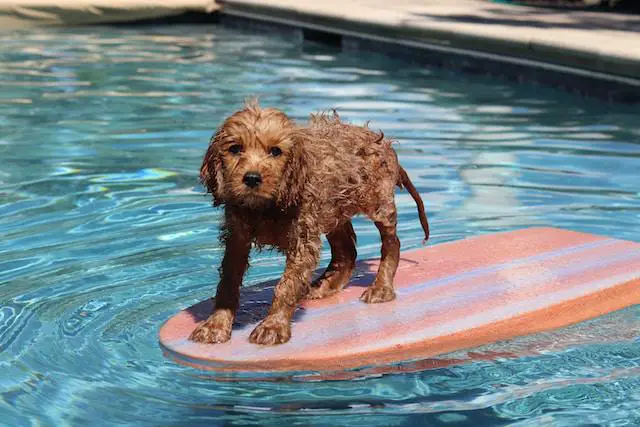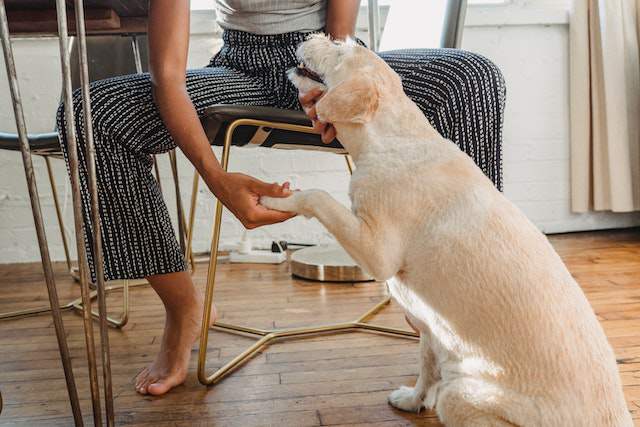17 Useful Maltese Pros And Cons You Should Know

Maltese dogs are a sweet and gentle breed of dogs but also have drawbacks which is why I present you with Maltese pros and cons.
This post is not intended to discredit Maltese dogs but to give you an insight into what you are going into by owning a Maltese dog.
After reading this post you should understand if the Maltese dog breed is the right breed or not.
So…
Maltese Pros And Cons
Here are some of the most common Maltese pros and cons you should know before getting one:
1. Maltese adapt to small living space
If you need a dog that can live with you in your little space, Maltese is the finest breed for you.
Due to their small size, low activity levels, and little demand for exercise, Maltese are small dog breeds that flourish in apartments.
As long as you’re with them, it doesn’t matter where you live or what you’re doing; they don’t care where you are or what you’re doing as long as you’re with them.
The Maltese have the benefit of being able to live in an apartment as well as a country home.
They are so dedicated to the owner that they will live in a tent if necessary.
2. Maltese are kid-friendly
Due to their small stature, Maltese get along well with children if they are taught how to handle them.
Maltese dogs are a lively breed that enjoys playing with kids but requires training, which is why they are introduced together.
A healthy Maltese can spend all day playing in the garden with a kid who is ready to run about.
You could discover your kids sleeping with your Maltese when you get home.
This is due to the fact that they have both spent a significant amount of time playing video games.
If you have active children, you are more likely to have a Maltese, as Maltese are more strongly linked with children who play with them on a regular basis than children who do not.
3. Maltese get along with cats
Maltese get along with cats because of their friendly nature, but they must first be socialized and taught.
The majority of Maltese owners feel that having Maltese in the house makes life more enjoyable.
Make sure the Maltese have been well-trained, especially in obedience, before bringing it to a home with a cat.
5. Maltese get along with other dogs
Maltese were bred to be companion dogs, and the breed has maintained this trait via selective breeding.
Because of their buddy nature, Maltese is one of, if not the greatest, dog breeds for getting along with other dogs.
Maltese love to play, and having a second dog around makes their lives a lot easier.
They are not suitable for large dogs due to their size, but Maltese dogs are better suited to other toy dogs.
6. Maltese are fantastic companion dogs
Maltese are mostly companion animals that provide friendship and affection to those in need.
This breed may be able to bring calm and tranquility even if a person is in a stressful circumstance.
As a result, these puppies are frequently seen in nursing homes and assisted living facilities, as well as among elderly people and couples.
This breed is also popular among young people and families with older children.
7. Maltese are affectionate
Few dogs, if any, can match a Maltese’s devotion; in fact, Maltese frequently beg for attention from their owners.
Cuddles are one of the most common methods for a Maltese to show their love for its owners; if a Maltese loves you, it will want to be with you all the time.
When Maltese dogs learn that their owner is leaving to work, they become agitated and begin barking loudly to attract your attention.
This breed understands your distress and desires to help you feel better.
They are affectionate, however, they will express their displeasure with being held quickly.
8. Maltese are not heavy shedders
Although Maltese dogs shed a little amount of hair, the rate of shedding is so low that you can mistakenly believe they don’t shed.
Maltese dogs continue to shed for reasons that are beyond their control; nevertheless, the causes of Maltese shedding may be managed but not eliminated.
Maltese dogs are noted for their long hair, and the fact that they are a non-shedding undercoat breed is clear; they do shed, but not as much as most other breeds.
9. Maltese don’t need a lot of outdoor exercises
Because of its small size, the Maltese dog is an excellent choice for people who aren’t or can’t be active every day.
Because they’re little, they don’t require a lot of outside activities.
It may be enough to keep them healthy if you have a patio or balcony.
You can better control their requirements by taking a few excursions to the lawn to urinate or using an inside gadget.
To keep them intellectually engaged inside, you’ll want to have a range of toys accessible for them to play with, but that’s usually all you need to do.
If you’re looking for a dog that can rapidly adjust to different people’s lives or help you make new friends, Maltese is a terrific choice.
Excursions are a favorite pastime of the Maltese. The only drawback to having a Maltese around is that they have difficulties regulating their nose and will sniff constantly while you walk.
Maltese adore going to parks and leisure places, so if you’re the kind to spend a lot of time outside, get a Maltese.
When you’re out in public, though, you should always have a way to keep your Maltese occupied.
Most other dog breeds are three times more difficult to socialize than Maltese.
It’s crucial to keep in mind that Maltese dogs may bark excessively for a variety of reasons.
Let’s discuss the cons…
11. Maltese dogs are prone to separation anxiety
If you are a busy person who travels a lot from day to day, Maltese is not the dog for you.
Unlike many other breeds, Maltese are completely reliant on their owners, whether they are at home or not.
Maltese want to be near their owners, and if you aren’t present, they may acquire unneeded Maltese behavior issues.
If you leave your Maltese alone for a long time, they may develop separation anxiety, therefore invest in a carrier and keep it with you at all times.
12. Keeping Maltese white fur clean is an extra job
Maltese dogs are known to be high maintenance in terms of its coat which comes mainly in white colors.
Maintaining these white coats is not a funny business, so if you’re not ready to keep them clean back off.
Little dirt stains their white coat, even tear stain is something you have to always deal with.
Again, keeping their coats clean is not for lazy people so if you can’t keep their white coats clean back off.
13. Maltese are prone to temperature sensitivity
This is a significant drawback of the Maltese, meaning that they are unsuitable for those who like intensive activity or reside in hot areas.
This means you’ll monitor your Maltese’s indoor and outdoor activities to ensure they aren’t overworked.
Despite the fact that Maltese get along well with children, they must be taught how to engage with them and when to stop playing in order to avoid overheating when the weather is hot.
Maltese are not suitable for those who live in hot or cold climates since they are temperature sensitive.
14. Maltese require regular brushing
The Maltese are known for their long hair, which requires constant combing.
If you don’t brush your dog on a regular basis, their coat may get matted, which can be unpleasant or cause skin problems if left untreated.
Even if you brush your dog every day, you’ll need to take him to the groomer on a regular basis, and the expense of all that grooming may mount up quickly.
15. Maltese are too clingy
While some people find their Maltese following them around the home annoying, others find it amusing.
When it comes to barking, biting, or nipping to gain attention, Maltese are no exception.
A Maltese is not for you if you don’t want a loving dog who requires frequent attention.
Maltese are wonderful companion dogs that spend their days with their owners; yet, if they are not well-behaved, they may become a serious problem.
16. Maltese show little difficulty in house-training
Maltese are similar to most other little dog breeds when it comes to housebreaking.
It might be challenging to get them to the point where they feel the need to go to the bathroom and have enough time to get out onto the grass.
Although this breed is stubborn in its behavior, if you are persistent in your training methods, you will eventually succeed.
If you’re used to potting training other dogs, expect this technique to take longer than intended.
17. Maltese can’t go outside alone
Maltese are too little to play outside without supervision, and larger creatures may prey on them.
If you want a dog that you can leave alone in your yard without monitoring, this is not the breed for you.
Outside, predators like hawks, snakes, coyotes, wolves, and eagles are waiting to pounce on your Maltese.
Predators can be alerted to their position by their barking, making it easier for them to trap them.
Frequently Asked Questions
What are some pros of owning a Maltese dog?
Maltese dogs are known for being affectionate and loyal companions.
They are small in size, making them ideal for apartment living or for those with limited space.
They have a low-shedding coat, making them hypoallergenic and easier to care for.
Maltese dogs are also adaptable and well-suited to being indoor dogs.
What are some cons of owning a Maltese dog?
Like any breed, Maltese dogs have their downsides. They can be prone to separation anxiety if left alone for long periods of time, which can lead to destructive behavior.
They also require regular grooming to keep their coat healthy and free of tangles and mats.
Furthermore, they may not be well-suited to households with young children, as they are delicate dogs and can be easily injured.
Are Maltese dogs good with children?
Maltese dogs can be good with children, but it depends on the individual dog’s personality and the behavior of the children.
Maltese dogs are delicate and can be easily injured, so they may not be the best choice for households with young children who are prone to rough play.
It’s important to supervise interactions between children and dogs to ensure everyone stays safe.
Are Maltese dogs easy to train?
Maltese dogs are generally intelligent and eager to please their owners, making them trainable.
However, they can be stubborn at times, so consistent and patient training is important.
Maltese dogs can also be sensitive to harsh training methods, so positive reinforcement training is recommended.
Do Maltese dogs have health issues?
Like all breeds, Maltese dogs can have health issues.
Some common health issues in Maltese dogs include dental problems, skin allergies, and Luxating Patella, a condition where the kneecap dislocates.
It’s important to keep up with regular vet checkups and any recommended preventative care or treatments.
Q: What should I consider before getting a Maltese dog?
Before getting a Maltese dog, consider your lifestyle and how well a small dog will fit into it.
Maltese dogs need daily exercise and socialization, so make sure you have the time to provide that.
Also, consider the grooming requirements of a Maltese dog and whether you are willing to commit to it.
Conclusion
If you’re considering getting a Maltese dog, it’s important to weigh both the pros and cons before making a decision.
While they’re known for being affectionate and good family pets, they do require a lot of attention and grooming.
Ultimately, the decision to get a Maltese dog is a personal one that depends on your lifestyle, preferences, and ability to provide the care their need.
Be sure to do your research and talk to other Maltese dog owners to get a better sense of whether this breed is right for you.



![Dog Possessive Of Owner With Other Dogs [Causes & Fixes] Dog Possessive Of Owner With Other Dogs](https://petcreeks.com/wp-content/uploads/2023/02/Dog-Possessive-Of-Owner-With-Other-Dogs-768x555.jpg)


